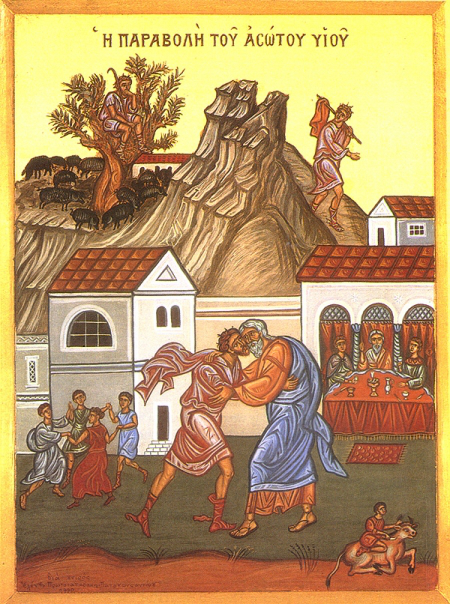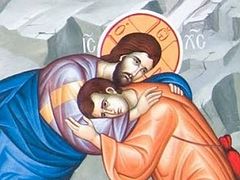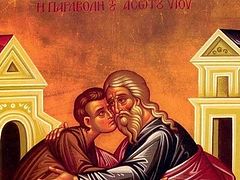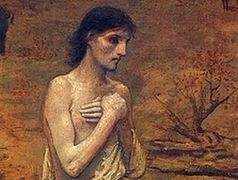Source: Again and Again
February 29, 2016

We hear this morning, just as we heard last Sunday and very often throughout the gospels how our Lord reveals to us the mysteries of our salvation, the mystery of God the Father, the mystery of the Heavenly Kingdom, through stories. The story, or parable, we heard this morning is certainly one of the most beautiful not only in the gospels but in literature in general. What’s more, it’s been read and studied by not only the church fathers but wise man, philosopher’s and great minds, throughout history. It’s the story of the Prodigal Son. Though, it’s been referred to by the church fathers at times as the story of the Merciful Father.
And indeed the son who asks for his inheritance and goes off and leaves his father’s house and wastes all of his money, ends up falling in a sort of depression until he finally comes to his senses and returns to his father’s house – this son plays the main role in the story. But he’s not the only son. There is another son, one who never leaves, who never asks for his inheritance, who remains with the father, works for him, is loyal to him, obedient to him. Yet, in reading the story one wonders which of the two sons was better than the other -the one who remained or the one who left and then returned sorrowful? What surprises us is how the son was received when he returned to the father. Not only was the father filled with joy but the entire house rejoiced. Everyone rejoiced expect for his brother who either couldn’t or refused to rejoice. It would be somewhat logical if the father was the one who didn’t rejoice. After all, the son didn’t leave his brother, he left his father.
But that’s not the case. Because while the younger son plays the major role in this morning’s story that which is major is not the fact he left his father, or wasted away his inheritance, or any other thing he did, what’s major in the role he played in this story is his repentance.
We stand before a long journey. A journey that will lead us from the material to the spiritual; a journey that will lead us into God’s Heavenly Kingdom. And the path on that journey is called Lent. It’s seven weeks of fasting which leads us to the great Feast of the Resurrection of Christ. That we might endure this journey the Church gives us two great helpers, two essential virtues without which we wouldn’t be able to endure: humility and repentance.
Last Sunday’s gospel of the Publican and the Pharisee gave us an example of humility through the publican who recognized and admitted his sinfulness and his prayer was short and simple and effective: God be merciful upon me a sinner.
This Sunday we’re given the example of repentance. This story is told in such a way that every man can find himself in it. We can all see ourselves, in a way, like the prodigal son who leaves his father, who leaves God, who neglects prayer, who has no time to go to church, who has no patience to listen to others, no compassion help one another. We are all in need of returning to God. But the only way we can do that is through our humility – through our admitting our fault and with repentance to return. As the Lord says at one place in the gospels, I tell you that in the same way there will be more rejoicing in heaven over one sinner who repents than over ninety-nine righteous persons who do not need to repent. Repentance is powerful and so mighty it can bring people back to life. For this son of mine was dead and is alive again says the father in this morning’s parable.
These are the two virtues we need in order to embark on the Lenten journey that it might bring fruit, that our fasting and our prayers might be well pleasing to God. May the upcoming Lenten season, which begins in two weeks, be unto our salvation.



